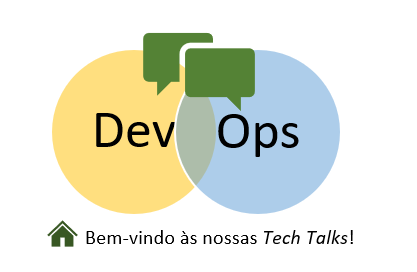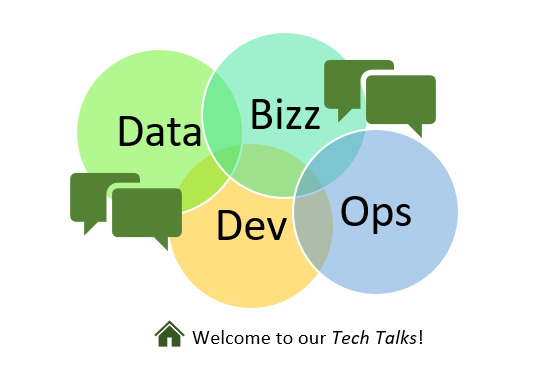Our culture, our values and what drive us
At La Redoute, the company’s culture embodies four core values, which we won’t cover in detail in this article. Still, we listed them here out of curiosity: trust, bold, curious, and responsible. These are the “explicit” values known by all collaborators regardless of their department or location. Our explicit values are tightly coupled with implicit forces: a growth mindset focusing on continuous improvement and continuous sharing. Above all, there is no doubt that our colleague’s engagement engages us.
If we search for “employee’s engagement”, literature (aka Google) will list us content pinpointing two main drivers of engagement: the financial and the non-financial. The funny fact is that more than often, the non-financial driver — or the lack of it — impacts the motivation and retention of collaborators. Among the non-financial ways to engage a collaborator, we will find numerous techniques that rely on recognizing the work done and giving good feedback, both positive and negative. Giving your team more responsibility and more visibility on the organization are examples of recognition actions.
The silver lining of the COVID pandemic could be the fact that globally people are more comfortable using IT tools to broadcast and share content. There was a boom of webinars, online meetups, and online internal events in many companies. In our IT team, we started way before the pandemic, and this was our journey.
First, Code Review meetings
Everything started a few years ago with code reviews where everyone from the Development team was invited. It happened on Fridays, and the goal was not to “code review” a piece of code that was just finished and was waiting for validation to go into production. We presented code already in production because our objective was to share and make it a moment to learn something and improve/share practices for development.
First sessions were sometimes quite stormy since hot topics raised discussion, and people lost the review’s focus. We remember particularly a session in which we were discussing the best error handling practices.

A New Format: an Internal Tech Talk
After a few sessions, we observed that the format was not the best, and we “refactored” it. We decided to call it Tech Talks, and this change removed pressure from people and increased the will to participate. Each sub-team continued to have their code reviews practices. What was the reason behind this change? Code Reviews can be challenging if not well conducted, mainly when people cannot express their opinions and when they cannot receive feedback about their code.
An Internal Tech Talk was a session where teams could present and discuss any exciting topic they were working on, and, of course, that was worth sharing. Since there are sub-teams in the Development team focused on different functional domains, it is acceptable that people are not aware of the projects other colleagues were developing. In this new format, Operations teams were also invited to attend and speak, and like this, we promoted the proximity between Development and Operations. It was a way of spreading knowledge among teams, following a DevOps mindset.

At this stage, we also formed a committee of ambassadors that would coordinate the organization of the talks. We became an organized entity to plan this type of event.

Next Stop: International!
The next step for us was to include the International IT teams (France, UK, …), first as attendees, then as speakers when they became aware of the format. Before this change, only the DevOps teams based in Portugal were invited to the Tech Talks. Why does this change make sense? For the same reason, our motivation is to be transparent and share knowledge, and the next logical step was to include other teams abroad.
Aligned with our International strategy, we have also received the support of our Corporate Communication team, who started publishing the Tech Talk events in our internal social network. This way, everyone is aware of our talks; it was a big step for us, which raised the bar. Our committee now includes a person from Communication Team who ensures that our tech talks don’t collide with other events in the company.
Speak business, but don’t forget the tech!
The fact that everyone in the company could attend our talks made us rethink how we would speak about the topics. As IT people, we tend to talk IT, which can be challenging to be understood by outsiders. So, we started to prepare our talks, thinking about other teams, and speaking in a more natural language for everyone. Nevertheless, we keep talking about tech, and frequently we are not able to avoid techy terms!
Today, the tech talks are still organized by the IT team to share the work done in the department, but now we follow a broader approach, and instead of having 1 IT speaker, we may have a multitude of speakers to share the work done transversally.
Why tech talks are a tool for recognition?
We started this article by describing the drivers for collaborator’s engagement. We then moved to explain our journey to implement our Internal Tech Talks, but maybe the connection between the two is still not clear for you.
For us, the tech talks are means to recognize the work done by an individual or team because we give voice to people to share the work they did. It’s an opportunity of showing the scope of a project, the challenges, the lessons learnt and the achievements. Also, we share how teams interacted together to achieve a common goal while forging relationships and cohesion.
Our challenges, our accomplishments, and the future ahead
As expected, there were challenges to implement these tech talks. Just to name a few examples: the availability of people, and sometimes some degree of scepticism about the usefulness of these talks.
As for accomplishments, we must mention that during the last year, we achieved a frequency of an event every two weeks, we shared about projects that other teams were not aware of, we influenced other colleagues to create their internal talks. We also managed to invite external speakers to discuss topics relevant to the company.
In addition, we promoted the skills of our collaborators because they were able to speak in public, in a foreign language, and all of that in a safe space (our company, our colleagues). The talks are recorded and available on our internal stream platform and are used as content for the onboarding process.
Above all, we promoted the work done by our teams and gave them visibility. We will keep with this type of initiative since our values drive us to build a platform in which people trust, responsible, and allow us to be bold and curious.
The future is just around the corner; we want to continue with our internal talks, and we will re-name them to Talks, just to keep it simple and more inclusive (for the ones scared about the word Tech).
